Life’s highest purpose is selfless service to others.

Finding the right words that do justice to my time in service is a mentally laborious endeavor. The emotional chasm that separates where I began from where I am now, somehow makes silence an honorable response.
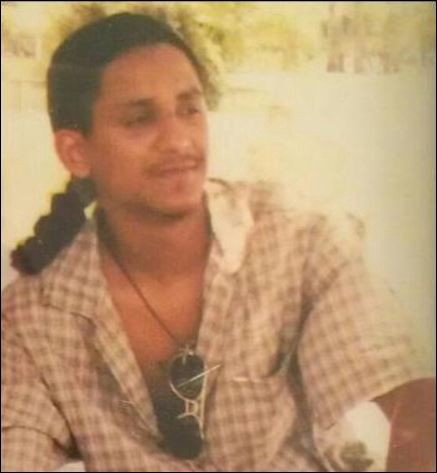
Perhaps it’s because I was raised in a small village on a tropical island, where I grew up surrounded by loving family, playing with friends in untamed nature, and swimming in the perpetual 85°F waters of the Caribbean sea.
Upon enlisting with the Navy, however, that blindfold of innocence was ripped off like a bandaid during military training. As the first in my family to join the service, I was woefully unprepared for the emotional experiences that were to follow in the years ahead.
“He who returns from a journey is not the same as he who left.” – Chinese Proverb
A (really) rough start
20 years — more than half my life at this point, was spent in uniform deploying to various parts of the world. At 19, after receiving my GED, I was sent aboard several aircraft carriers to support pilot training for blue water flight operations (i.e. very deep ocean). Then in 2001 at the age of 20, the 9/11 attacks occured and my aircraft carrier, the USS John F. Kennedy, was immediately thrusted into one of the leading roles of combat operations. We were at war; not just against the enemy, but against ourselves.
I’ve always thought that humans were an odd bunch. With all of our scientific intellect and brain power, we still draw lines in the sand to uphold the “us vs them” paradigm. Our ability to reduce the infinite span of the human spirit to worthless rubble is an unfortunate circumstance of the delusionary narrative that continues to hypnotize the masses. Little did I know that I would soon be the victim of such a circumstance as I entered one of the most challenging periods of my life.

9/11 was the Pearl Harbor of my generation. Extrapolating from how Americans of Japanese descent were treated after the attack on Pearl Harbor, it shouldn’t be a surprise that after 9/11, anything that looked “muslim” would be in the social crosshairs.
Unfortunately for me, the hate for “muslim terrorists” aboard the USS JFK made my Catholic upbringing and American accent irrelevant, while quickly bringing my skin color and other surface-level features to the forefront. Overnight I became a walking target, trapped on a ship in the middle of the ocean with people who were fueled by hate for people who looked like me. These were my shipmates whom I swore an oath to serve alongside, protect, and if need be, die for.
That deployment stretched my spiritual faith to new limits on a daily basis. For instance, while eating in the galley, sailors would walk by and knock my tray of food off the table. They would openly tell demeaning, racist jokes about me, in my presence. They publicly called me a sand n*****, and did much, much worse.
How high up the chain of command did this hate go? I wasn’t about to try and find out by filing an official complaint, which in hindsight was a smart move. 14 years later when I detailed those traumatic experiences to my chain-of-command, I was accused of concocting the ordeal. Trust me, I get it. Even I felt ashamed that the organization I loved could degrade to such incredible lows. A reality so disturbingly shocking is a difficult pill to swallow.
At this point in my life, however, I’ve come to realize that each of us are on our own life’s journey. So even though the 2002 deployment was a festering hornet’s nest of islamophobia and I was caught in the middle of it all, I forgive any and all wrongs that may have occurred. That said, at the time I had nowhere to escape to, so I did the only thing that made sense to me: I planned for massive success.
With the help of a Navy Chief from Puerto Rico, to whom I will forever be indebted, I prepared and submitted an application for commissioning as a naval officer. Several months later, I received news that I was selected for the highly prestigious Seaman-to-Admiral program to complete an undergraduate degree in Computer Science. I can still remember the day I told my enlisted shipmates that I was selected to be a naval aviator. The shop supervisor shouted across the room, “So you think you’re good enough to be an aviator, huh Diptee? You’ll never get those golden wings. The only thing you’re good for is a golden shower of piss.”
The turning point
Well, it turns out he was only half-right. After receiving my commission, I went to flight school but couldn’t stand the testosterone driven, alpha-male culture of naval aviation, so I requested a transfer into information technology and cyber security, which had a culture that enabled me to naturally excel.
My first deployment as a naval officer was to Baghdad, Iraq. Those 12 months were a major turning point in my life, in more ways than I could possibly imagine.
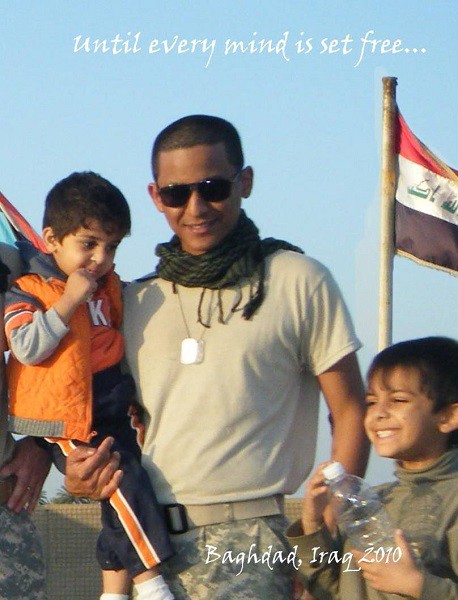
I was in a country of people who looked like me, yet military training led me to believe that all of them were “potential enemies”. Paradoxical as it seems, we were tasked with working alongside Iraqis to help rebuild their country, a monumental effort as you can imagine, all while maintaining a healthy amount of paranoia and mistrust for them.
What I found after arriving with “boots on the ground” in-country, however, was a culture that reminded me of my childhood upbringing on the islands where people often hugged, laughed, and shared openly as part of cultural interactions. I worked with young children who would tug on my uniform and climb into my lap speaking to me in Arabic. I met families who invited me to dinner in their tiny homes, where we would sit on the floor and share stories, laughs, and humble meals together late into the night.
I suppose my island upbringing gifted me with a worldview that allowed me to clearly perceive the beauty of Iraqi culture and people. While there I formed deep connections with locals, and even though I didn’t speak the language, I amassed considerable wasta and could get just about anything done in a fast and efficient manner.
I remained torn between the mistrust toward Iraqis that I was trained to have, and the incredible mission impact I experienced by forming human connections with them. Remember, these were the people who ‘could not be trusted under any circumstance’, so I naturally wondered, “is this simply a continuation of the islamophobic narrative I experienced during my enlisted years?”
The brotherhood
My Saturday afternoons in Baghdad were spent volunteering with the local families where I helped teach first aid, science, and other activities, but truth be told, it was a much needed and welcomed respite from the 18-hour days in Saddam Hussein’s “Perfume Palace”. As my participation with the group of volunteers gradually increased, I earned the Iraqi nickname of كريم — “Kareem”, meaning “generous”.
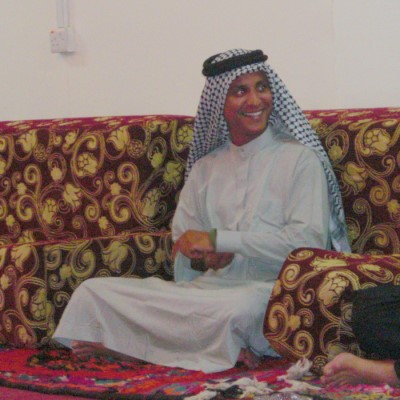
It was around this time that I met Ayad, a young Iraqi interpreter whose life would become forever woven into the fabric of my own. He was 18 and known as David, a name he purposely chose so Americans could easily pronounce it. From a distance I could tell from Ayad’s body language that he wasn’t fond of being around American troops. Like myself, he was conditioned to have no trust for “the other side”, and remained suspicious of American activities that, often times, portrayed a lack of sensitivity toward Iraqi traditions and culture.
I walked up to Ayad and introduced myself with a firm handshake and a warm smile. His walls stayed up for a while, but over the course of several months, Ayad and I built very strong bonds of trust. When he realized that I “wasn’t like the others” (his words), we were able to have vulnerable human-to-human dialogue without the power dynamics war creates. As I listened to him venting his frustrations about the invasion, life, and a precarious future that seemed to hang in the balance, I quickly realized that our innate human similarities far outweighed any socially superficial differences.
Our friendship grew stronger over time, and we would sometimes sit in one of Saddam Hussein’s bombed palaces late at night, playing music, sharing a hookah and tea, and chatting about life. On one of those occasions, I sat on the cold ground staring through a giant hole in the ceiling at points of light in the night sky. A UAV flew high above in a slow circular flight pattern, blending in with the stars. I turned to Ayad and asked, “If you could do anything with your life, anything at all … what would it be?”
Without hesitation, he replied, “I want to live in America and become a famous Hollywood actor.” After a period of silence that seemed to last for an eternity, I got up shouting with elation as though we had just struck gold.
Keep in mind, this statement was coming from a young man who was trapped in a war torn country, having no idea of how such an audacious dream might manifest itself. For all practical purposes, in such a seemingly hopeless situation, moving to Hollywood shared the same probability of success as time travel. Nevertheless, I was overcome with joy to say the least, because I knew that if he could openly make such a bold statement with such conviction, it would only be a matter of time until it actually happened, even against such incredibly high odds.
That night he told me that I was the first positive male figure he ever had — someone who believed in him and supported his dream to live a full and meaningful life. He saw me as the big brother he never had but so desperately needed, and I was honored to be able to fill that role.
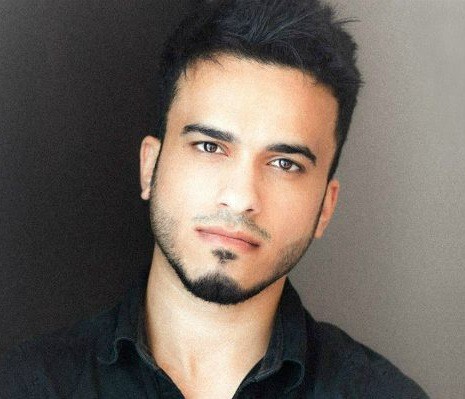
Ayad is now an actor who lives in California with his family. We shared many dangerous and powerful experiences while in Iraq, and so have decided to capture it all in a script before the memories fade. We’ve decided to call the movie Impossible Brotherhood, and it’s based on our story: the unlikely bond between an Iraqi teenager and an American military officer who transcend vicious stereotypes to achieve the impossible against all odds. If this movie idea sounds like something you’d like to be a part of, please don’t hesitate to reach out.
The Final Sunset
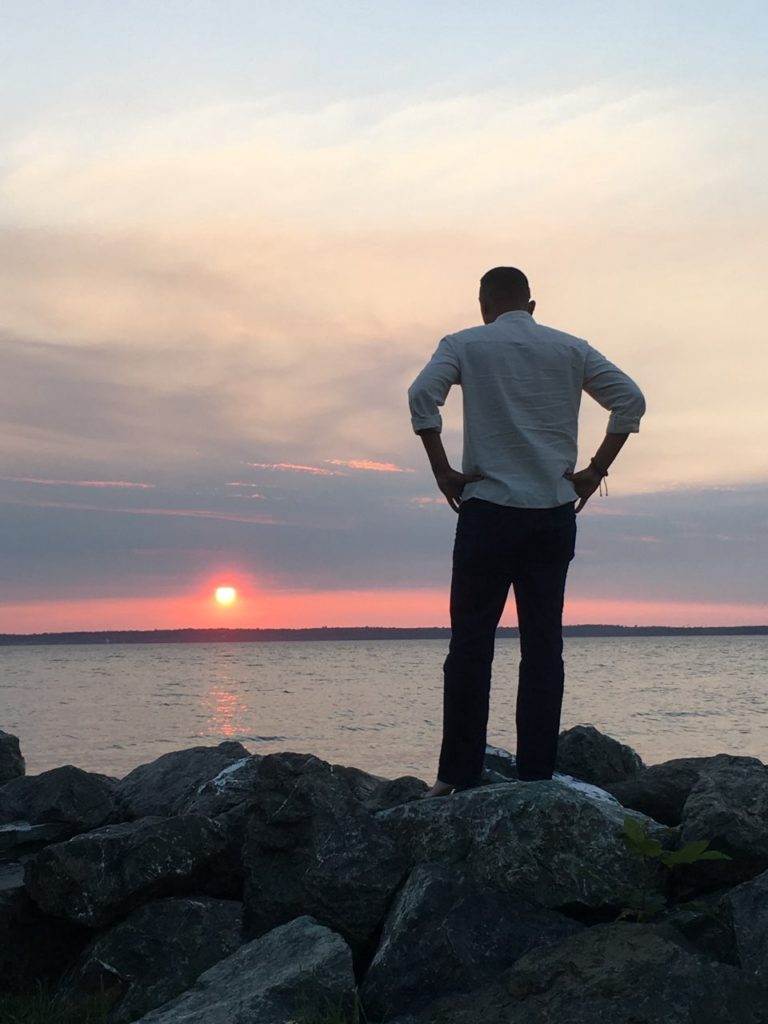
As I gazed into the horizon at the setting sun that marked the last day I would have to wear a military uniform, I was flooded with emotions and memories of the 20 years prior, along with a deep sense of gratitude.
The first words uttered to the morning sky as I woke up in civilian status for the first time in two decades was a very deep and heartfelt, “Thank you.”
The physical and emotional scars of military service may never fully go away, but neither will the memories of all the people I’ve helped and connected with over the years. All of the experiences combined, the good and the not-so-good, have formed the man I am today, and for that I am truly grateful.
There’s much more to share, but perhaps those experiences and life lessons are best exchanged over a pot of tea. With so many close calls that should have maimed, killed, or destroyed me, I know that this next phase of life is meant to accomplish incredible things for the greater good of humanity.
Should we be fortunate enough to cross paths on this short journey of life, it would be my honor to share my time with you and discuss how we might design a better world, together. Yours in service, DDD.